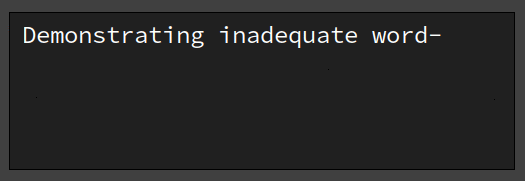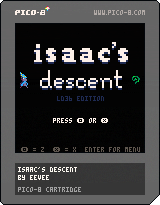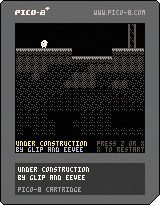In the beginning, there was ZZT. ZZT was a set of little shareware games for DOS that used VGA text mode for all the graphics, leading to such whimsical Rogue-like choices as ä for ammo pickups, Ω for lions, and ♀ for keys. It also came with an editor, including a small programming language for creating totally custom objects, which gave it the status of “game creation system” and a legacy that survives even today.
A little later on, there was MegaZeux. MegaZeux was something of a spiritual successor to ZZT, created by (as I understand it) someone well-known for her creative abuse of ZZT’s limitations. It added quite a few bells and whistles, most significantly a built-in font editor, which let aspiring developers draw simple sprites rather than rely on whatever they could scrounge from the DOS font.
And then…
And then, nothing. MegaZeux was updated for quite a while, and (unlike ZZT) has even been ported to SDL so it can actually run on modern operating systems. But there was never a third entry in this series, another engine worthy of calling these its predecessors.
I think that’s a shame.


![[articles]](https://eev.ee/theme/images/category-articles.png) Word-wrapping dialogue
Word-wrapping dialogue
![[updates]](https://eev.ee/theme/images/category-updates.png) I entered Ludum Dare 36
I entered Ludum Dare 36

![[process]](https://eev.ee/theme/images/category-process.png) Storing Pokémon without SQL
Storing Pokémon without SQL
![[personal]](https://eev.ee/theme/images/category-personal.png) One year later
One year later
